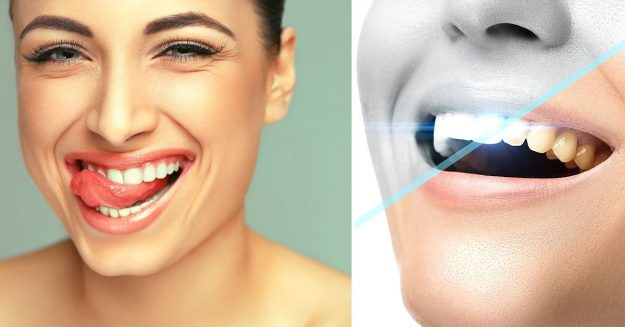If you're wondering how to whiten bonded teeth at home, you've come to the right place.
Bonding is a dental procedure that repairs broken, cracked, and chipped teeth with a a tooth-colored composite resin. It also helps repair decay, fill cavities, and change the tooth's shape, so it helps close gaps or makes it appear longer.
However, if you whiten your teeth, you may notice that your bonded teeth would stand out because it remains the same color as your pre-whiten teeth.
This will make you hate your dental bonding, but with our guidance, we will show you what steps to take to prevent this "catastrophe" so that you will love your dental bonding again.

How to Whiten Bonded Teeth at Home?
In short, while you can whiten your teeth at home, there is no way for you to whiten the bonding material. It will pick up stain and crack over time, meaning you will need to go to a dentist to have the bonding redone or to have porcelain veneers. Read on to learn your full options.
How Dental Bonding Respond to Color?
Teeth whitening procedures and products offer a simple and effective strategy to remove stains caused by habits, food, and drinks over time. They can wipe out any staining substance, such as berries, tomato sauce, soda, coffee, red wine, and tobacco.
Unfortunately, trying to whiten bonded teeth is another type of battle. The porcelain and the bonding resin color are created to blend in with your natural teeth color. When it bonds to your natural teeth, no one can tell you are wearing something different except for a dental professional.
Bonding resins are non-porous, which is completely different from tooth enamel. Since tooth enamels contain pores, the staining agent can penetrate your tooth. Fortunately, whitening agents can also penetrate the surface of the teeth to get rid of the staining agent. Since the resins are non-porous, the whitening agent cannot penetrate its surface. Therefore, your resin bonded teeth will look discolored or stain in a specific area because of the contrast from your bleached natural teeth.
Another thing to worry about is the resin can get stained or discolored from various staining agents over time.
How and When to Whiten Bonded teeth?
An excellent time to whiten your teeth is before having a bonding procedure. This actually makes sense because your teeth will be at their whitest when the dentist matches the bonding resin color. If you keep your teeth clean and whiten with an excellent oral care regime, your bonded and natural teeth will continue to match.
If you had a dental bonding procedure in the past and want to whiten your teeth, there’s still hope. There are two strategies that you can take:
The first solution is to get a porcelain veneer that matches your whiten teeth and covers the stained bonded tooth at the same time.
Another solution is to replace the stain resin with a new bonding resin that matches the whiten tooth color. This would be a preferred option if your bond has deteriorated or is more than ten years old.
It’s vital to talk to your dentist about the procedure and these options before going forward.
What Are The Effects of Teeth Whitening?
If you want a positive teeth whitening experience at home with prescribed or over-the-counter whitening product, here are some things to keep in mind:
- Always follow the instruction that the package provides.
- Some over-the-counter whitening agents can aggravate your gums resulting in oral sensitivity. If you feel any pain, discomfort, or burning, stop using the product immediately.
- Constant usage of whitening products can destroy your natural tooth enamel, increasing the risk of teeth sensitivity.
- Keep in mind that your bond teeth will not get lighter, but your natural teeth will.
If you want a safe and optimal experience, definitely talk to your dentist about whitening your teeth in his or her office. This will allow you to discuss more about various procedures and solutions.
Related: DIY TEETH WHITENING
How to Whiten Your Teeth at Home Quick and Easy
Final Thoughts on How to Whiten Bonded Teeth at Home
If you’re thinking about teeth bonding, definitely talk to your dentist about whitening your teeth before the bonding procedure and strategies to handle stains in the future. If you have bonded teeth that are stained or discolored, your dentist is a good source of information. He or she can provide you with different ways to lighten your bonded teeth so they match well with your natural teeth.
After all, your dentist went through long years of schooling to perfect your smile, so you know that they are the experts to seek out.
